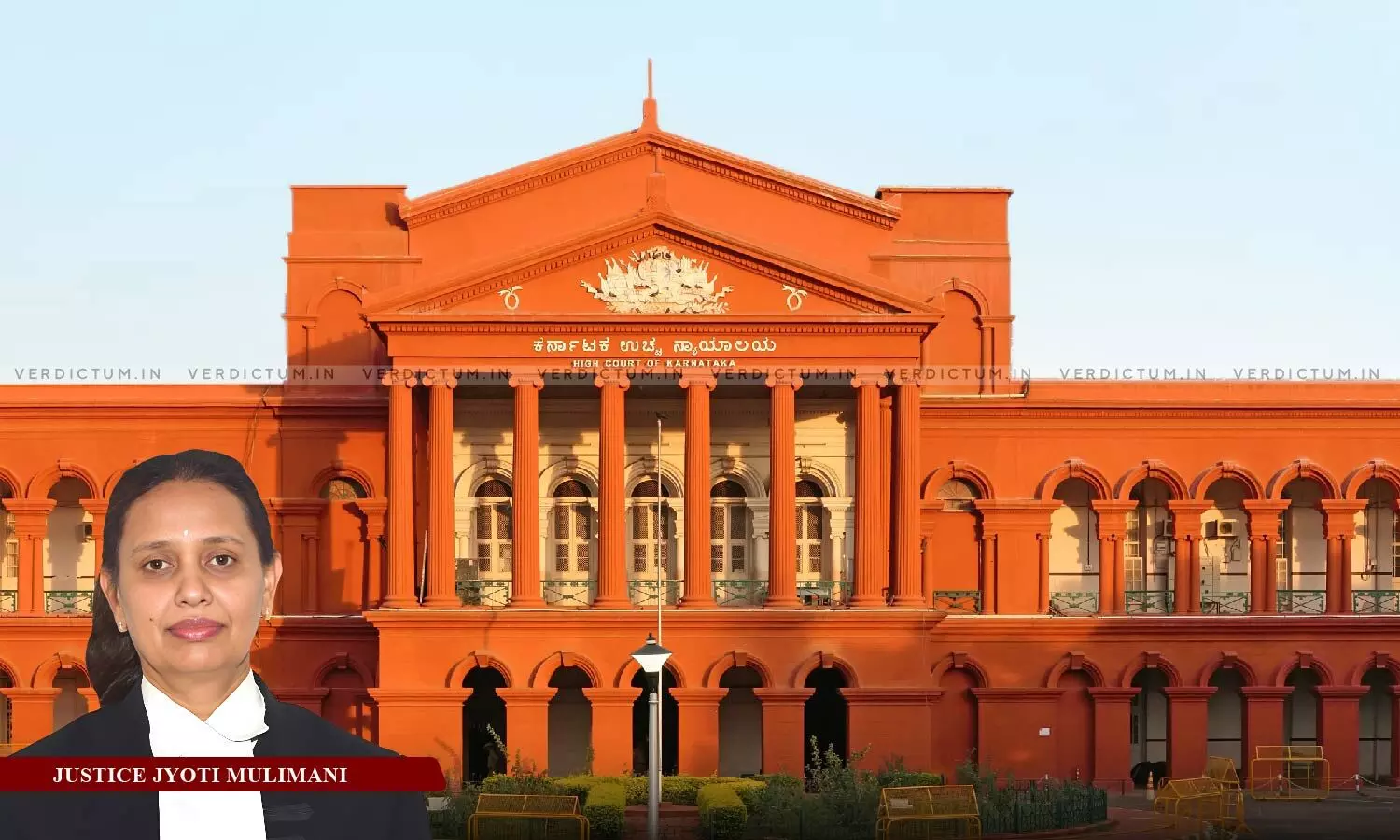
Section 11A Industrial Dispute Act| Labour Court Is Not Empowered To Interfere With Punishment Order When Dismissal Order Warrants No Interference: Karnataka HC
 |
|The Karnataka High Court held that the powers vested under Section 11A of the Industrial Disputes Act (IDA) do not empower the Labour Court to interfere with the punishment order if the dismissal order warrants no interference.
The Court allowed a Writ Petition challenging the order of the Labour Court. The Court noted that the interference of the Labour Court was not required as the decision of the Disciplinary Inquiry was not perverse. The Court emphasized that the Labour Court is empowered to interfere with the order of punishment only if it is unduly harsh.
Justice Jyoti Mulimani observed, “Therefore, the interference with the order of dismissal and the relief granted is not tenable. It is relevant to note that the powers under Section 11A of the I.D Act would enable the Labour Court to interfere with the order of punishment provided that the punishment imposed is harsh. In the present case, no such finding is recorded. On the contrary, the Labour Court holds that the order of dismissal warrants no interference, hence the interference with the order of punishment and the relief granted is unsustainable in law”.
Advocate H.R. Renuka appeared for the Petitioner, and Advocate Suresh M. Latur appeared for the First Respondent.
The Petitioner was a driver for the Corporation, and while on duty, he was involved in an accident resulting in the death of two people and injuries to three others. He was issued Articles of charge and subjected to a disciplinary inquiry, which found him guilty. He was dismissed from service but filed a claim petition before the Labour Court. The Labour Court modified the order of dismissal to one of compulsory retirement with back wages but no consequential benefits. Aggrieved, the representatives of the Petitioner approached the Court by way of a Writ Petition challenging the order of the Labour Court.
The Court observed that the Labour Court had reduced the punishment given to a worker on two grounds. Firstly, they stated that since the worker had passed away, his legal representatives would face more difficulties. However, the Court held that the Labour Court erred in its decision as it had already concluded that the dismissal of the worker warranted no interference. Therefore, the Court held that the Labour Court had no authority to change the punishment given and modify any relief.
“The Labour Court interfered with the quantum of punishment on two grounds; that the workman is no more and the legal representatives of the deceased workman would be put to greater hardship. This is erroneous. The reason is simple. The Labour Court records a finding that the order of dismissal warrants no interference, hence it could not have proceeded further in the matter”, the Court observed.
Accordingly, the Court allowed the Petition and set aside the impugned order.
Cause Title: The Management v Shekarappa Chalavadi